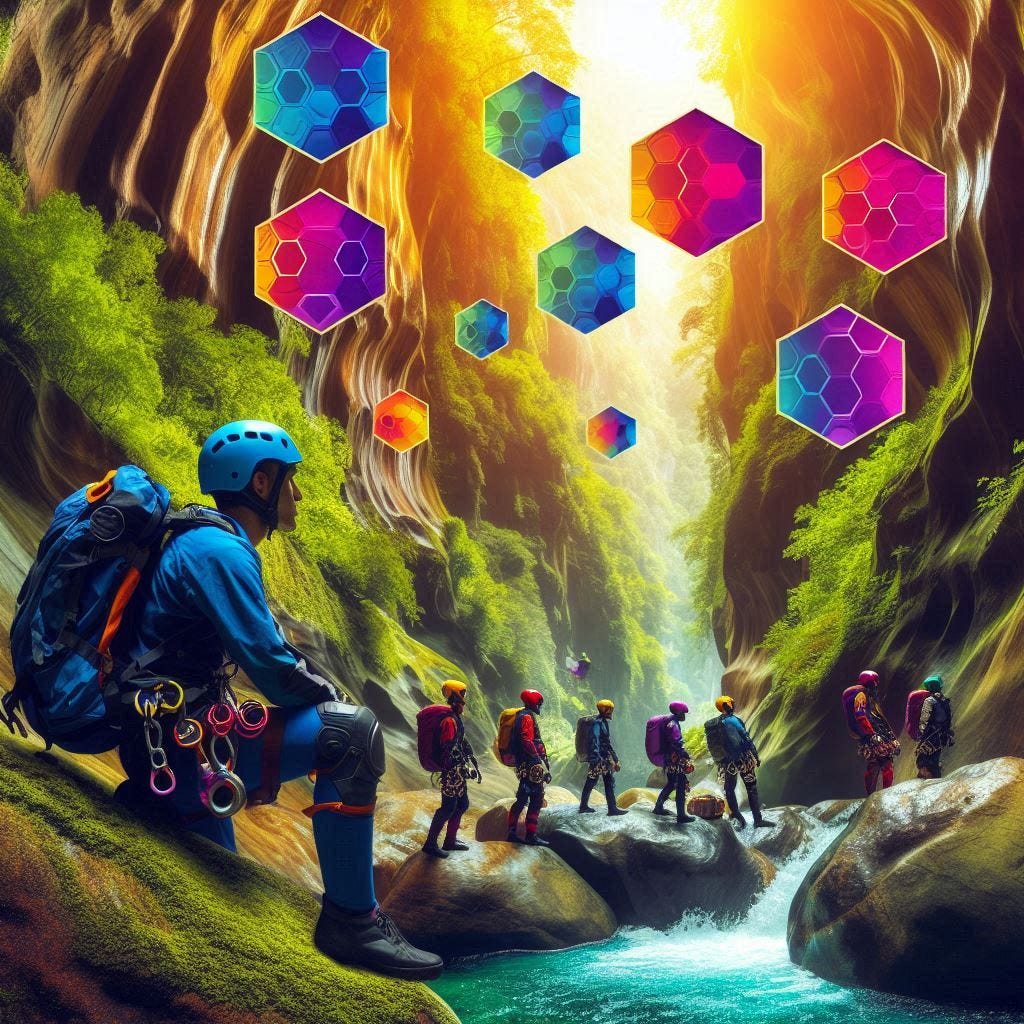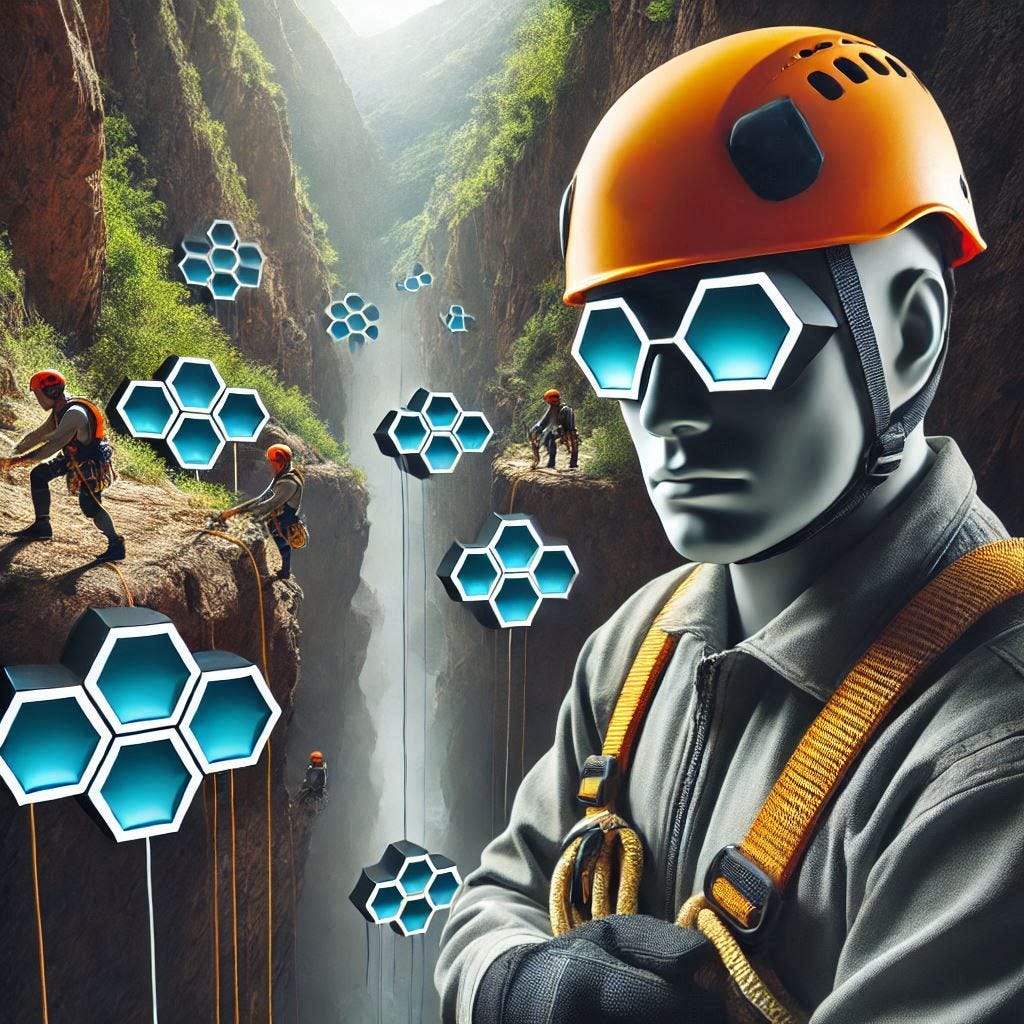Canyoneering & Personality Types
Using the RIASEC model to identify interests and a canyoneering development path
If you canyoneer for a while, and mix along with different people and communities, you will start to perceive the different types of canyoneers. These differences show acutely when canyoneers engage in learning skills, formally or informally, and solidify as a canyoneer gains experience.
RIASEC Model of Six
John Holland's RIASEC theory categorizes people and activities into six personality and occupational types:
Realistic: Also known as the "do-er"
Investigative: Also known as the "thinker"
Artistic: Also known as the "creator"
Social: Also known as the "helper"
Enterprising: Also known as the "persuader"
Conventional: Also known as the "organizer"
People can have interests in all six areas, but usually one to three types are dominant.
Personality types that are close together on the Holland hexagon tend to be more similar. For example, Realistic and Social are opposite each other, while Social and Artistic are closer together.
So, how do these 6 types translate to canyoneering?
Realistic: Prefers to learn by doing. They want to learn canyoneering techniques by actually doing canyons. Tend to get bored with context and abstract concepts. Because of this, they tend to acquire a narrow set of tools.
Investigative: They tend to question current established techniques without trying them first.
Artistic: They tend to immediately divert to a made up technique without trying first the established procedures.
Social: They tend to prioritize canyoneering as a socializing and community building endeavor.
Enterprising: They tend to use canyoneering as a medium for an enterprising venture.
Conventional: They tend towards organized and structured environments. Gravitates towards associations, organizations and federations of canyoning/canyoneering.
Relate, empathize, grow
This model may serve as an aide to see where your co-workers (pro guides), team members (recreational canyoneering) or new members (canyoneering groups/clubs) are coming from, relate and accommodate their pre-dispositions in a more emphatic way. Also, these categories may serve to take a look at your own interests and pre-dispositions, and become a more balanced, complete practitioner: Grow.
References:




